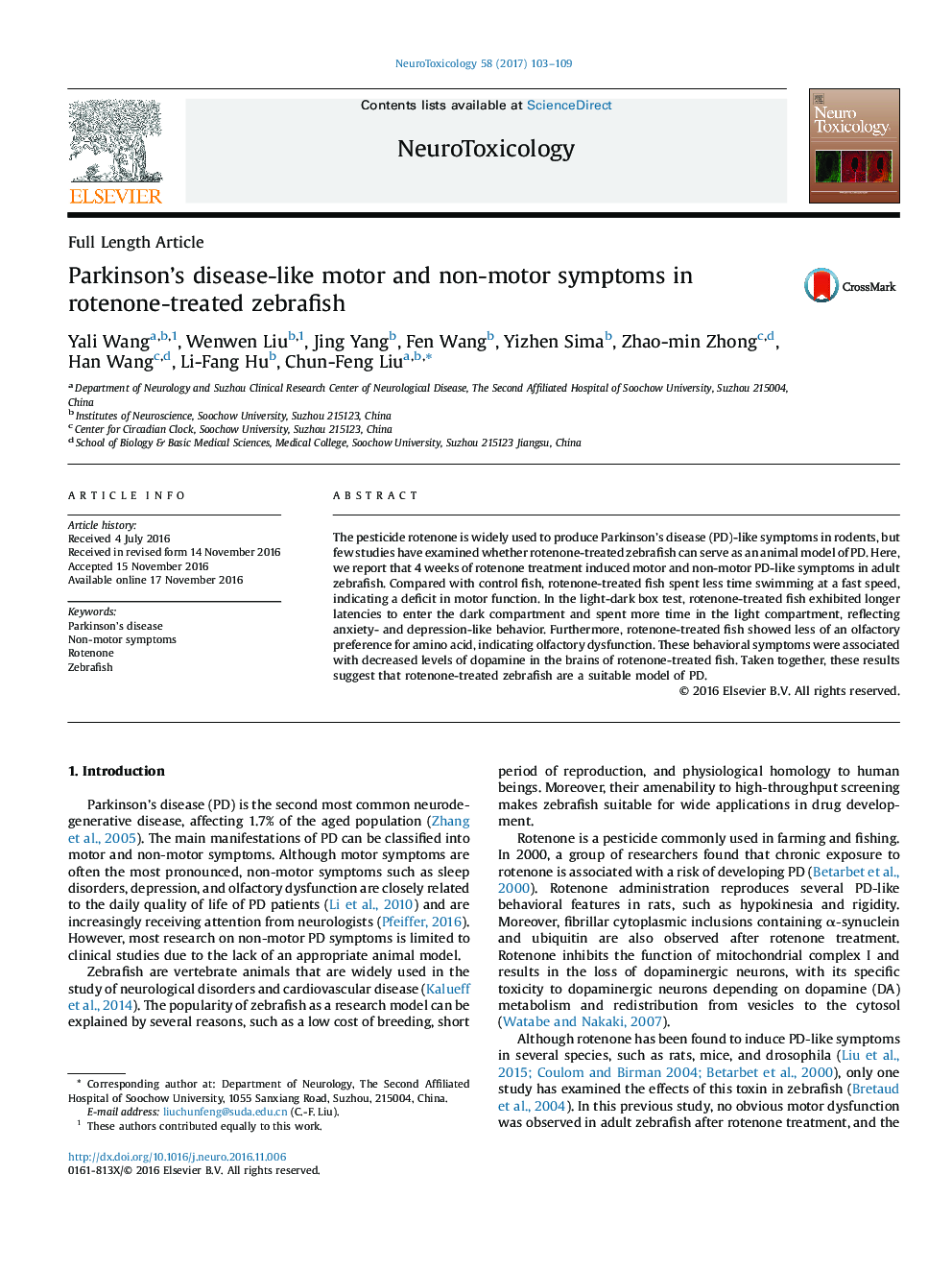| Article ID | Journal | Published Year | Pages | File Type |
|---|---|---|---|---|
| 5560870 | NeuroToxicology | 2017 | 7 Pages |
â¢The motor ability of zebrafish may be impaired after rotenone exposure for 4 weeks.â¢The zebrafish showed anxiety-like behavior following rotenone exposure.â¢Olfactory dysfunction was observed in rotenone-exposed zebrafish.â¢The decreased DA level may account for the PD-like symptoms in rotenone group.
The pesticide rotenone is widely used to produce Parkinson's disease (PD)-like symptoms in rodents, but few studies have examined whether rotenone-treated zebrafish can serve as an animal model of PD. Here, we report that 4 weeks of rotenone treatment induced motor and non-motor PD-like symptoms in adult zebrafish. Compared with control fish, rotenone-treated fish spent less time swimming at a fast speed, indicating a deficit in motor function. In the light-dark box test, rotenone-treated fish exhibited longer latencies to enter the dark compartment and spent more time in the light compartment, reflecting anxiety- and depression-like behavior. Furthermore, rotenone-treated fish showed less of an olfactory preference for amino acid, indicating olfactory dysfunction. These behavioral symptoms were associated with decreased levels of dopamine in the brains of rotenone-treated fish. Taken together, these results suggest that rotenone-treated zebrafish are a suitable model of PD.
